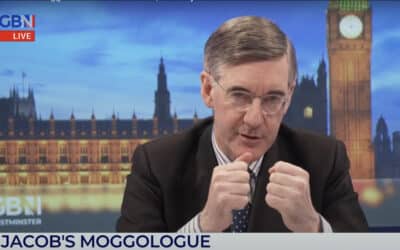With a general election approaching, and following a series of decisions about programmes presented by politicians found to be in breach of Rules 5.1 and 5.3 of the Ofcom’s code of conduct, the regulator has issued strengthened guidance over broadcaster impartiality.
The new guidelines also follow recent Ofcom research, involving 29 focus groups with 157 participants from a range of backgrounds, which the regulator said found that “Viewers and listeners strongly value due impartiality as an important requirement, especially for news programmes.”
The latest guidance makes clear that broadcasters retain editorial freedom to create programmes which move between news and current affairs content, but cautions that if a broadcaster chooses to use a politician as the host of such a programme, they must ensure they do not act as a newsreader, news interviewer or news reporter at any point in that programme.
Broadcasters are also reminded that Rule 6.6 of the Code prohibits candidates in UK elections from acting as news presenters, interviewers or presenters of any type of programme during the election period. Politicians who are not standing as candidates in a UK election can present non-news programmes – including current affairs – during election periods, provided that programme complies with all relevant Code rules.
Although Ofcom’s latest research was not directly connected to the spate of recent code breaches, there are undeniably areas of overlap.
“Viewers and listeners are at the heart of everything we do,” said Cristina Nicolotti Squires, Ofcom’s broadcasting and media group director, of the research findings. “That’s why it was so important to give audiences from all walks of life, geographies and political persuasions the opportunity to have their in-depth say on the hotly debated issue of politicians presenting programmes.”
“While viewers and listeners expressed a range of opinions, the feedback overall fundamentally supports the robust broadcasting rules we already have in place. People are clear that, they expect broadcasters to maintain the highest standards of due impartiality. It follows that, given politicians’ partial viewpoint, audiences don’t want to see or listen to politicians presenting news – full stop. But while many are instinctively uncomfortable with politicians presenting current affairs, there was no clear consensus for an outright ban.”
“There are a number of important lessons here for broadcasters. We expect them to pay close attention to what their viewers and listeners are telling them through the research, our published decisions involving politicians as presenters, and to our strengthened guidance on how we expect the rules to apply in practice.”
“As we approach the local elections and edge ever nearer to a General Election, we’re also sending a clear warning to broadcasters – and particularly those that use politicians as presenters – that nothing short of the highest standards of compliance with the heightened impartiality rules during this period will be acceptable. Should any broadcaster fall short, we’ll move swiftly to enforce those rules.”










